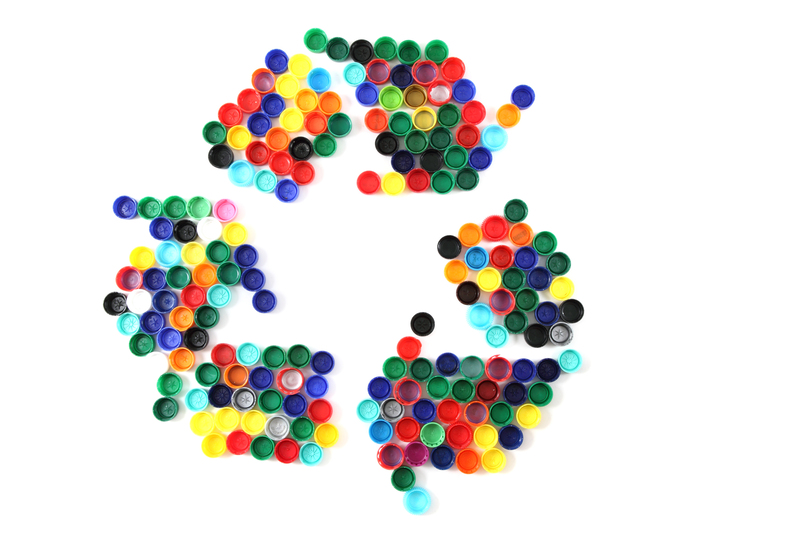Innovative Strategies for Enhancing Your Home Recycling
With environmental concerns growing every year, households are seeking smarter ways to reduce waste and make a difference. Adopting innovative home recycling strategies can not only minimize your ecological footprint but also inspire your community. In this comprehensive guide, discover creative solutions, technological aids, and actionable tips for revolutionizing your home recycling efforts.

Why Enhancing Your Home Recycling Is Important
Home recycling is a cornerstone of sustainability, but traditional recycling habits may not be enough in the face of increasing waste production. By innovating your recycling routine, you can:
- Reduce landfill contributions.
- Lower resource consumption.
- Cut down on pollution.
- Encourage a greener community.
- Save money on waste collection fees.
Innovative home recycling strategies not only streamline your recycling process but also ensure more materials are reused effectively.
Understanding the Recycling Basics
Before diving into innovative ideas, it's vital to master the essentials of recycling at home:
- Know your area's accepted materials. This includes plastics, metals, glass, cardboard, and paper.
- Rinse and clean recyclables. Remove food residue and liquids to prevent contamination.
- Avoid recycling certain items. Items like plastic bags, greasy pizza boxes, and certain plastics are typically non-recyclable curbside.
- Flatten cardboard boxes. This saves space and increases recycling efficiency.
Once you integrate these practices into your routine, you'll be ready to take your recycling to the next level with innovative strategies.
Creative Sorting Solutions
High-Tech Bins for a Modern Home
Upgrade your recycling experience by investing in smart recycling bins. These can feature:
- Multiple compartments for easy sorting.
- Sensors that identify and categorize materials.
- Automatic lid-openers for hygiene and convenience.
- Built-in compactors to reduce volume.
Integrating smart bins makes it simpler to keep materials separate and track what your household recycles most.
DIY Recycling Stations
Designate a recycling center within your home or garage using labeled containers. Options include:
- Custom labels: Use clear graphics, color codes, or bilingual instructions for ease of use by the entire family.
- Stackable bins: Use vertical space efficiently in small homes.
- Mobile recycling carts: For seamless transport to curbside bins or recycling centers.
Transform your recycling area into an informative, organized hub that makes sorting easy and fun.
Leveraging Technology for Enhanced Home Recycling
Waste & Recycling Apps
Download specialized apps that provide guidelines on local recycling regulations, pick-up schedules, and recycling dos and don'ts. Leading apps include:
- iRecycle: Offers a directory of over a million recycling programs across the U.S.
- Recycle Coach: Customizable reminders and educational tools for families.
- JouleBug: Gamifies eco-friendly living, including recycling achievements.
Barcode Scanning for Materials Identification
Some modern recycling bins now include barcode scanning technology to automatically identify if an item can be recycled. Apps like RecycleSmart let you scan a product's barcode and instantly get information about its recyclability in your area.
Smart Collection and Storage Ideas
Composting as a Complementary Recycling Solution
Not all waste fits traditional recycling bins. Composting is an eco-friendly way to turn food scraps and certain paper products into nutrient-rich soil. Innovative home composting methods include:
- Electric countertop composters that speed up decomposition and manage odors.
- Vermiculture (worm composting) bins for small spaces.
- Outdoor tumblers for larger households.
Upcycling for Practical Reuse
*Enhancing your home recycling* isn't just about disposing of materials. It can mean giving items new life through upcycling. Consider:
- Transforming glass jars into storage containers.
- Using old T-shirts as cleaning rags.
- Turning pallets into furniture or garden planters.
- Crafting home decor from cans, bottles, and cardboard.
Upcycling reduces waste, saves money, and sparks creativity within your household.
Educational Approaches to Home Recycling Enhancement
Family Recycling Challenges
Make recycling a fun, family activity. Set up monthly challenges to see who can reduce waste the most or come up with the best upcycling project. Offer rewards like a family movie night or a special treat.
Reminders and Visual Aids
- Place infographics or posters near your recycling station detailing what can and cannot be recycled.
- Set up reminder magnets or notes on the fridge to encourage correct disposal habits.
*Education* ensures all household members understand local recycling rules and the importance of proper separation and cleaning.
Community Initiatives and Partnerships
Beyond individual households, joining community recycling programs can amplify your impact. Participate in or advocate for:
- Neighborhood collection drives for electronics, batteries, and hazardous materials.
- Local swap meets for gently used items like clothing, books, and toys.
- Community composting initiatives.
Forming alliances with neighbors or local organizations can unlock new recycling opportunities and raise awareness about sustainable living.
Reducing Recycling Contamination
Know What Not to Recycle
One of the biggest challenges in home recycling is contamination--when non-recyclable materials end up in the recycling bin. Common culprits include:
- Plastic bags and films
- Greasy pizza boxes
- Ceramics and drinking glasses
- Electronics and batteries
- Diapers and hygiene products
Check with your local facilities for specific guidelines, as recycling rules can vary widely by region.
Clean and Dry Principle
Adopting a "clean and dry" rule helps prevent entire batches of recyclables from being rejected. Rinse containers and let them dry before tossing them in the bin. This simple practice significantly increases recycling efficiency.
Advanced Home Recycling Tips
- Bulk Buy and Refill: Buy in bulk and use refill stations to reduce packaging waste.
- Opt for Reusable Over Disposable: Cut down waste by using cloth napkins, reusable shopping bags, and water bottles.
- Recycle Non-Curbside Materials: Find specialized drop-offs for electronics, batteries, printer cartridges, and medicines.
- Support Brands with Take-Back Programs: Some companies offer packaging return services for their products.
Implementing these strategies exemplifies a commitment to *innovative home recycling*.

Embrace the Circular Economy at Home
The circular economy champions keeping resources in use as long as possible. At home, you can embrace this philosophy by:
- Buying recycled-content products.
- Choosing items with minimal or recyclable packaging.
- Donating or selling rather than discarding.
- Repairing instead of replacing.
Each action closes the loop, turning waste into resources and fortifying your commitment to sustainable living.
Conclusion: The Future of Home Recycling Starts with You
Enhancing home recycling is not only about the quantity of waste you divert from landfills, but also the quality of your efforts and their sustainability over time. By embracing technology, rethinking sorting systems, pursuing educational initiatives, engaging with your community, and practicing contamination prevention, your household can make a measurable impact on the environment.
Let these innovative strategies for home recycling guide you towards a greener, cleaner future. Start small, stay informed, and remember--every positive change in your home can inspire others and contribute to the planet's well-being.
Ready to Take the Next Step?
Begin by choosing one new strategy this month and watch how a simple change can revolutionize your home recycling routine and ripple through your community.